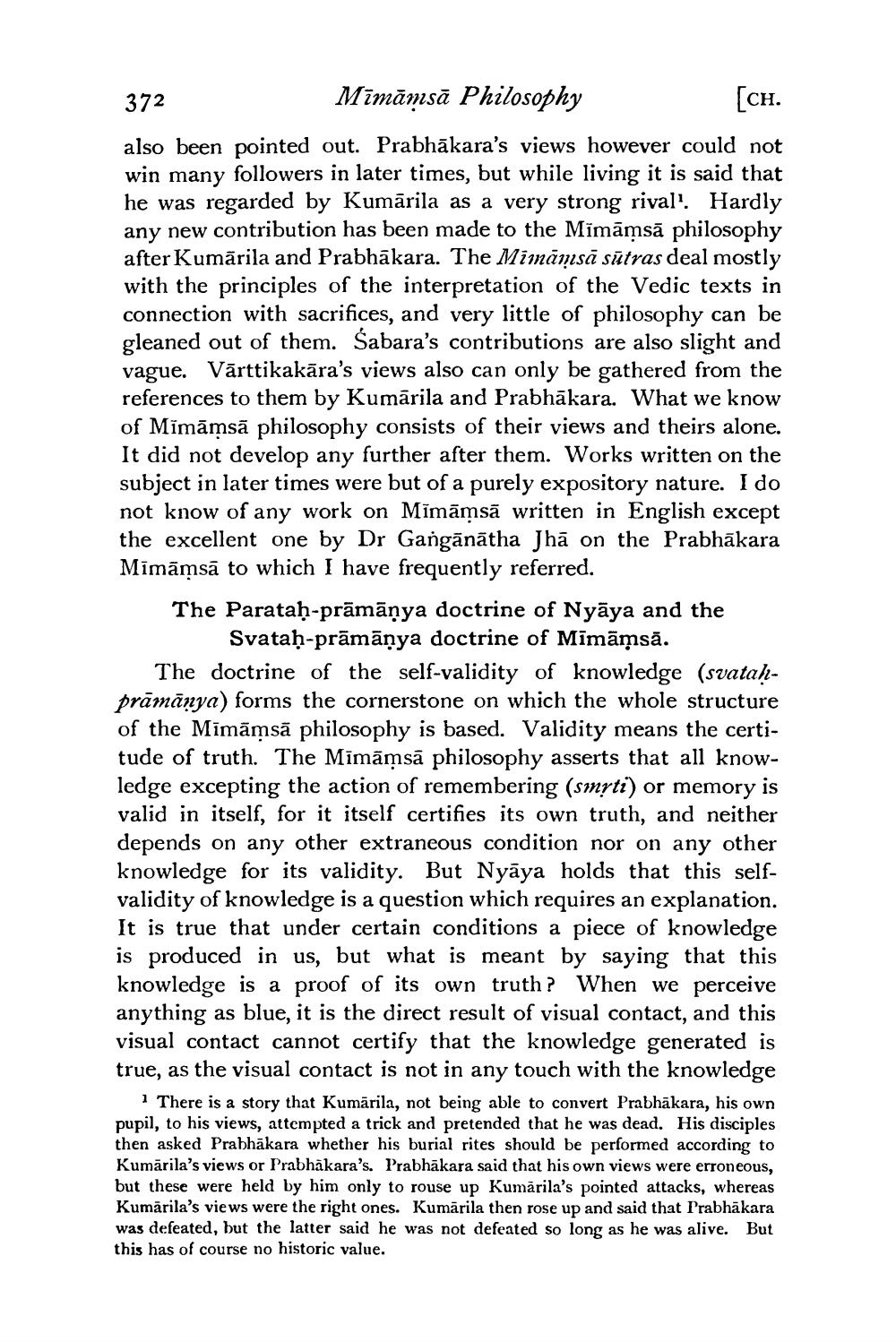________________
372
Mīmāmsā Philosophy
[CH.
also been pointed out. Prabhākara's views however could not win many followers in later times, but while living it is said that he was regarded by Kumārila as a very strong rival". Hardly any new contribution has been made to the Mimāmsā philosophy after Kumārila and Prabhākara. The Miināmsā sūtras deal mostly with the principles of the interpretation of the Vedic texts in connection with sacrifices, and very little of philosophy can be gleaned out of them. Śabara's contributions are also slight and vague. Vārttikakāra's views also can only be gathered from the references to them by Kumārila and Prabhākara. What we know of Mīmāmsā philosophy consists of their views and theirs alone. It did not develop any further after them. Works written on the subject in later times were but of a purely expository nature. I do not know of any work on Mīmāmsā written in English except the excellent one by Dr Gangānātha Jhā on the Prabhākara Mīmāmsā to which I have frequently referred. The Parataḥ-prāmānya doctrine of Nyāya and the
Svataḥ-prāmānya doctrine of Mīmāmsā. The doctrine of the self-validity of knowledge (svatahprāmānya) forms the cornerstone on which the whole structure of the Mīmāmsā philosophy is based. Validity means the certitude of truth. The Mīmāmsā philosophy asserts that all knowledge excepting the action of remembering (smrti) or memory is valid in itself, for it itself certifies its own truth, and neither depends on any other extraneous condition nor on any other knowledge for its validity. But Nyāya holds that this selfvalidity of knowledge is a question which requires an explanation. It is true that under certain conditions a piece of knowledge is produced in us, but what is meant by saying that this knowledge is a proof of its own truth? When we perceive anything as blue, it is the direct result of visual contact, and this visual contact cannot certify that the knowledge generated is true, as the visual contact is not in any touch with the knowledge
There is a story that Kumārila, not being able to convert Prabhākara, his own pupil, to his views, attempted a trick and pretended that he was dead. His disciples then asked Prabhākara whether his burial rites should be performed according to Kumārila's views or Prabhākara's. Prabhākara said that his own views were erroneous, but these were held by him only to rouse up Kumārila's pointed attacks, whereas Kumārila's views were the right ones. Kumārila then rose up and said that Prabhākara was defeated, but the latter said he was not defeated so long as he was alive. But this has of course no historic value.




